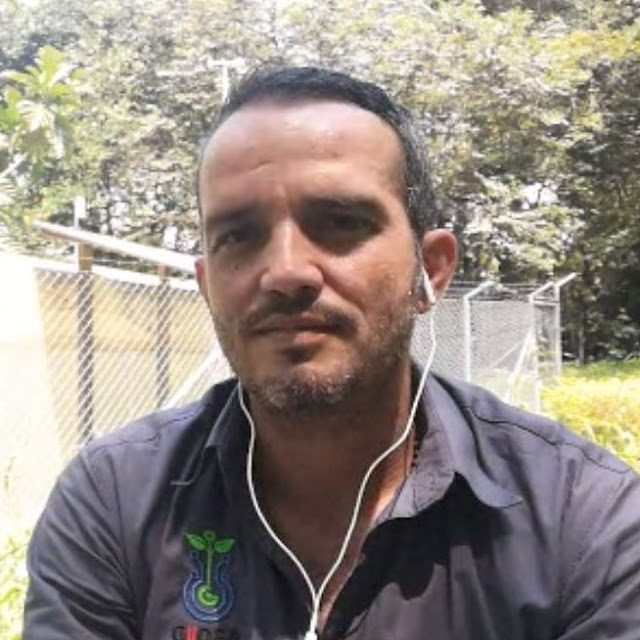Simple and inexpensive tools will bring the fourth industrial revolution and precision agriculture to farmers in Valle de Cauca, in the form of autonomous greenhouses, thanks to researchers at the Cartago campus of the Universidad del Valle (Univalle).
The agricultural sector is of great importance to the Colombian economy: In 2020, it contributed around 7.6 percent of the value to the country's gross domestic product (GDP) - the highest proportion in a decade.
"It will be beneficial for farmers, particularly small-scale farmers, to take advantage of the potential of modern high-tech, low-cost solutions," said Professor Edward Jhohan Marin Garcia, Univalle professor at the Cartago campus and director of the Research Group on Innovation and Development in Applied Electronics (GiiDEA).
In the project "The Fourth Industrial Revolution Applied In A Greenhouse", the team developed a prototype of an automated greenhouse that allows measuring and controlling a wide range of values of temperature, indoor humidity and soil humidity.
In addition, they also measure UV radiation, precipitation, wind speed and direction, pressure, temperature and humidity of the atmosphere outside, by means of intelligent sensors, providing a suitable and efficient environment to protect a wide range of crops from pests and natural phenomena.
Professor Marín commented that the group has a mission to solve real problems, in this case, with an agricultural focus, where the participation of other sectors such as the private sector, government, among others, is expected.
Photo: Soil moisture sensor with Internet of Things (IoT) based tools. Credit: Research Group on Innovation and Development in Applied Electronics (GiiDEA).
The Research
The researchers say they work with the goal of generating innovative contributions that allow generating a research space with the possibility of obtaining information (Big Data) about the agricultural process of interest, in addition to having the possibility of generating controlled environments.
"If we can measure characteristics such as atmospheric humidity, temperature, soil moisture and external radiation we can have a finer control of the agricultural process," Professor Marín said.
"It is a specialized research space where teachers and students of electronics and agri-environment can interact," Professor Marín said, adding that the products obtained in the research process are expected to serve as input for farmers and that they will see these methodologies as an optimal investment for their future projects.
"With technology, it is a question of the amount of investment, but we try to organize ourselves according to the resources and needs of the farmer," Professor Marín said.
Some examples of crops suitable for this system include cucumbers, cilantro and tomatoes, but it can work for a wide range of crops.
Read more from Univalle’s Electrical and Electronic Engineering School: New Tech To Detect Electrical Failures in Colombia's Remote Regions

Foto: Sede Cartago de la Universidad del Valle (Univalle). Credito: Univalle
Sede Cartago
El invernadero experimental está construido en una sede regional de Univalle en el municipio de Cartago, en el norte del departamento de Valle del Cauca.El sede fue creada el día 5 de septiembre de 1986, empezó a funcionar un año después y hoy en día se sirve los municipios de Cartago, La Virginia, Ansermanuevo, Toro, Obando, Alcalá, Ulloa, La Unión, El Águila, El Cairo, Versalles, Belén de Umbría, Viterbo y el corregimiento de Zaragoza.
Además, la sede ofrece pregrado en Ingeniería Electrónica y tecnologías en Electrónica Industrial, Agroambiental, gestión de Organizaciones Turísticas, entre otros.
Fernando Echeverry Valencia, el director del Sede Regional de Cartago dijo que la investigación que lidera el profesor Edward Jhohan Marín es importante para toda la comunidad del Norte del Valle y el eje cafetero pues la vocación de la región es agroindustrial.
“Lo que se pretende es aplicar C+Te+I y lograr así potenciar la competitividad en el campo y las zonas urbanas”, manifestó el profesor Echeverry, añadiendo que también es importante porque fortalece la seguridad alimentaria.
“Los grupos de investigación ubicados en las sedes regionales de la Universidad del Valle responden a las necesidades y dinámicas de las subregiones en las cuales están ubicadas, facilitando el equilibrio en el conocimiento e instrumentalizando los resultados obtenidos, adicionalmente se generan relacionamientos interinstitucionales formando y consolidando equipos multidisciplinares con nuevas propuestas para la Universidad y para el país”, planteó el profesor Echeverry.

Foto: Edward Jhohan Marin Garcia, docente de Univalle en la sede de Cartago y director del Grupo de Investigación en Innovación y Desarrollo en Electrónica Aplicada (GiiDEA). Crédito: Andrew James/NCC-FI/Univalle.
International Connections
Researchers at the Cartago campus has been strengthening regional links but are also participating in international events.
Professor Marín said that in the first semester of 2022, the "IV international seminar on research advances and applied electronics was held from the research group", where there were guests from Mexico, the United States and also universities from other parts of Colombia.
"We try to focus on developments based on applied CTeI, but we also diversify in social, environmental and interest aspects'', explained Professor Marín.
In addition, the researchers of the group carried out in 2020 and 2021 the International Schools of Advanced Training (EIFA), which promote the formation of international academic communities and the training of specialized personnel.
"We have managed to greatly strengthen the issue of internationalization," said Professor Marin.


Comentarios
Publicar un comentario